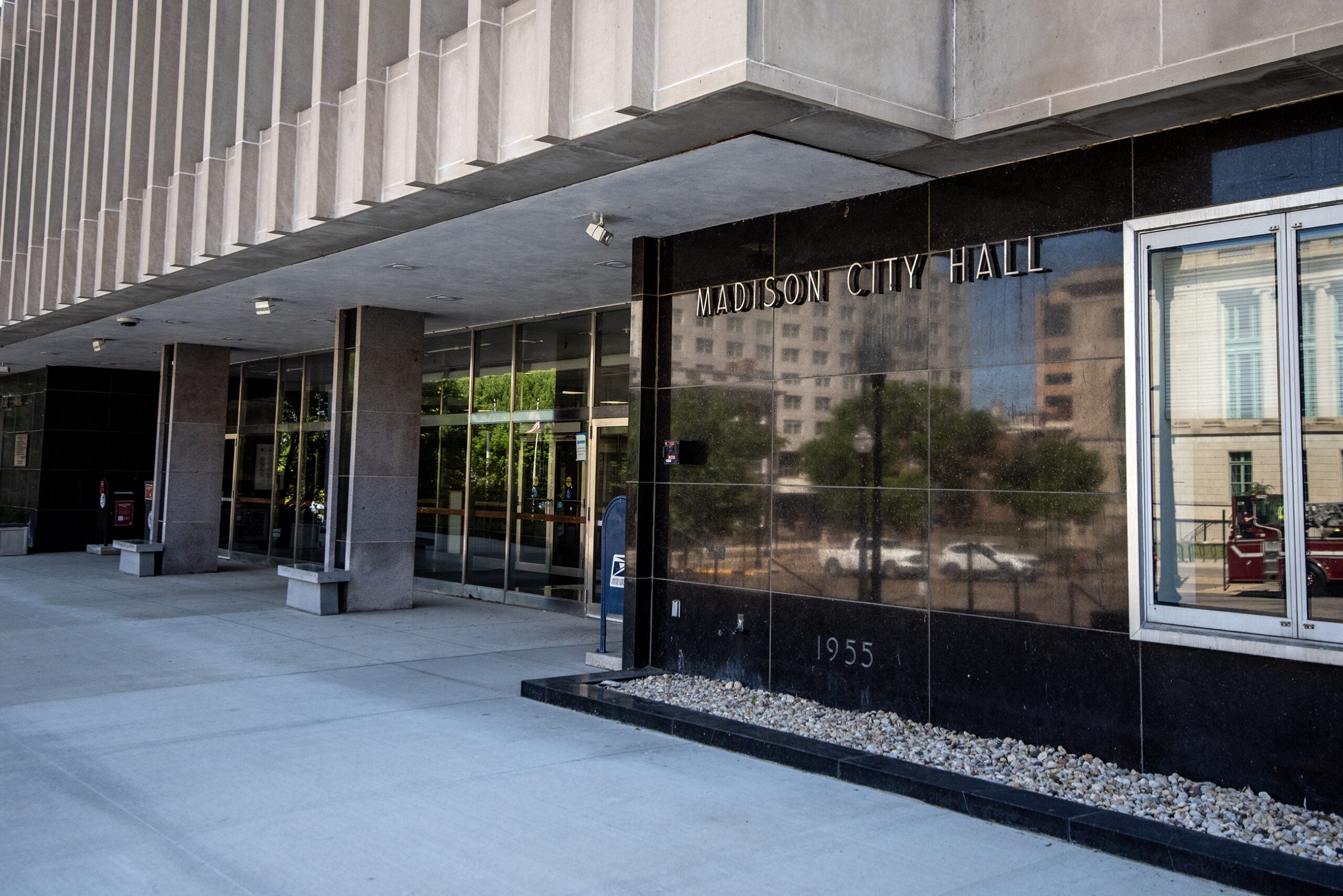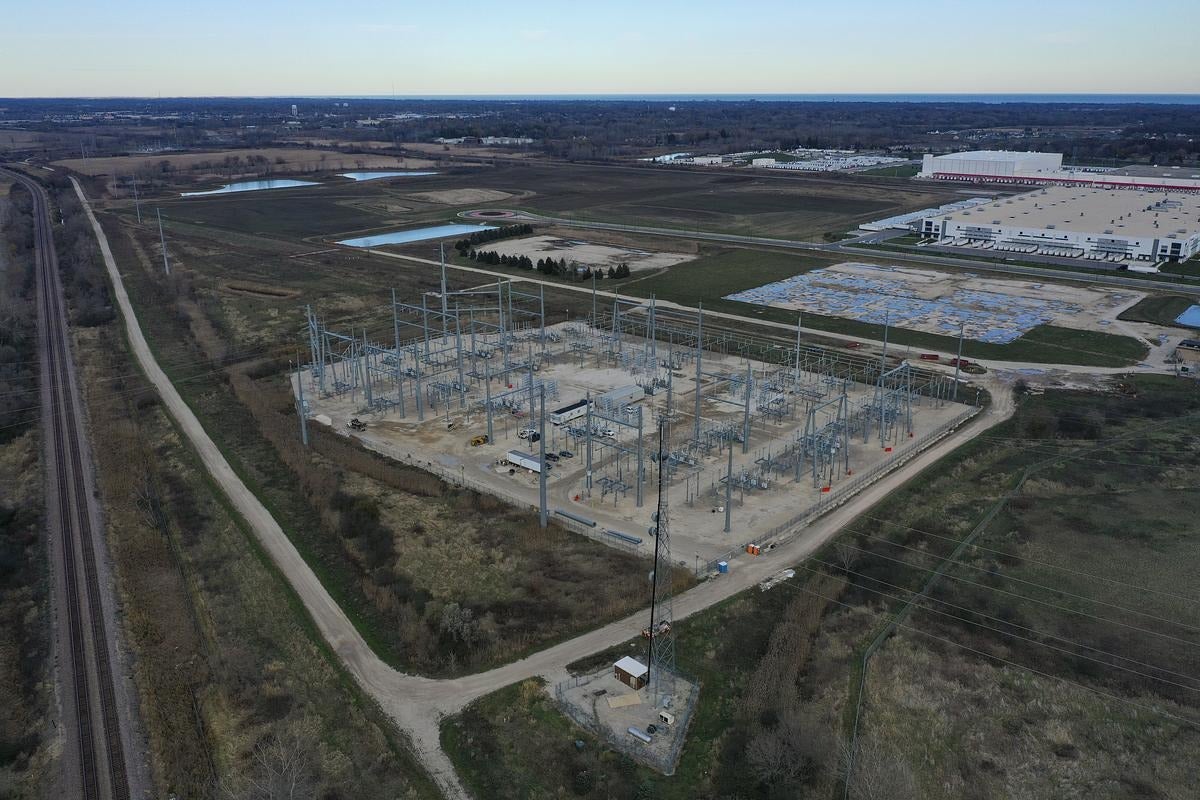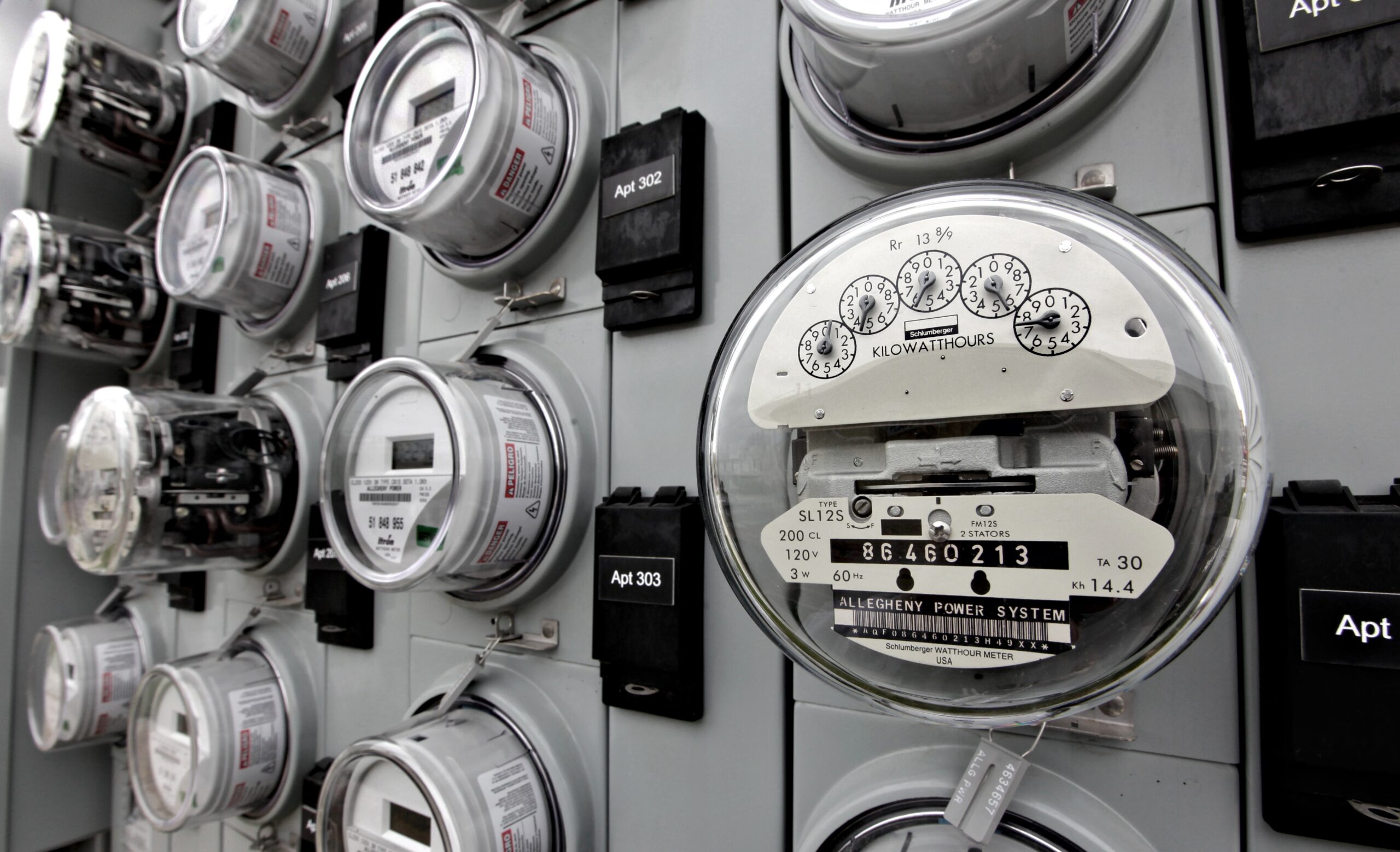Madison is launching the first phase of a program in which property owners are required to track energy use at commercial buildings.
Madison’s Common Council voted unanimously last spring to approve the new rules, with the goal of combatting climate change.
Across the country, more than 50 local state and local governments mandate some form of energy benchmarking for commercial buildings.
News with a little more humanity
WPR’s “Wisconsin Today” newsletter keeps you connected to the state you love without feeling overwhelmed. No paywall. No agenda. No corporate filter.
But Madison is the first in Wisconsin to approve such a policy, which includes potential fines for noncompliance.
The city’s online portal for building owners went live in May. As part of the program’s first phase, owners of commercial buildings over 100,000 square feet have until Sept. 6 to fill out a report covering 2023’s energy usage.
Medium-sized commercial buildings will be lumped into the reporting requirements in 2025, and by 2026, reports will be required from any commercial building over 25,000 square feet.
To complete their reports, Madison building owners will use a free online tool from the U.S. EPA called ENERGY STAR Portfolio Manager.
The hope is that by auditing their energy use, building owners will be able to make simple fixes that cut down on both their carbon emissions and their energy bills, Madison Sustainability and Resilience Manager Jessica Price said. Federal tax credits and other incentives are available to people seeking to improve energy efficiency.
“It’s really about providing valuable information about a building’s energy use so that folks take those next steps that are right for them,” Price said.
But Bill Conners, who represents real estate developers as the executive director of Smart Growth Madison, said the new requirements are cumbersome and unnecessary. He said building owners already have a “profit motive” to watch their energy bills.
“There might be some commercial building owners who don’t pay attention to this at all that this would help,” Conners said. “But the vast majority, they’re already very focused on this, and so it’s essentially extra make-work that doesn’t provide any benefit to them.”
Smart Growth Madison submitted testimony to Madison’s Common Council last year, arguing the energy benchmarking program should be voluntary rather than mandatory.
Madison’s latest inventory found that 45 percent of citywide greenhouse gas emissions came from commercial buildings. And Price said it was important for the benchmarking program to be mandatory, so it could get widespread buy-in.
“Across the country, places that have tried that voluntary programs typically only see a fraction of those buildings participating,” Price said. “To really get to our climate and energy goals … it’s really all hands on deck.”
The city points to analysis from the EPA’s Energy Star Program, which found that buildings that went through the benchmarking process saw an energy savings of 2.4 percent a year.
Madison officials plan to publish reports with aggregate data from the energy audits.
“People won’t be looking at (energy use from) other people’s individual buildings,” Price said.
Eventually, under Madison’s ordinance, commercial buildings over 50,000 square feet will be compelled to undergo an energy “tune-up” every four years. The goal of those tune-ups is to make sure systems like lighting or HVAC controls aren’t wasting energy unnecessarily.
“Importantly, tune-ups are NOT focused on major upgrades to buildings or building equipment. Rather, tune-ups aim to ensure the existing equipment is running as intended,” a city staff memo explains.
Building owners can skip if the tune-up process if they submit documentation, showing that their building is “highly efficient” or that they’ve taken steps to improve energy efficiency.
This story has been updated.
Wisconsin Public Radio, © Copyright 2025, Board of Regents of the University of Wisconsin System and Wisconsin Educational Communications Board.







